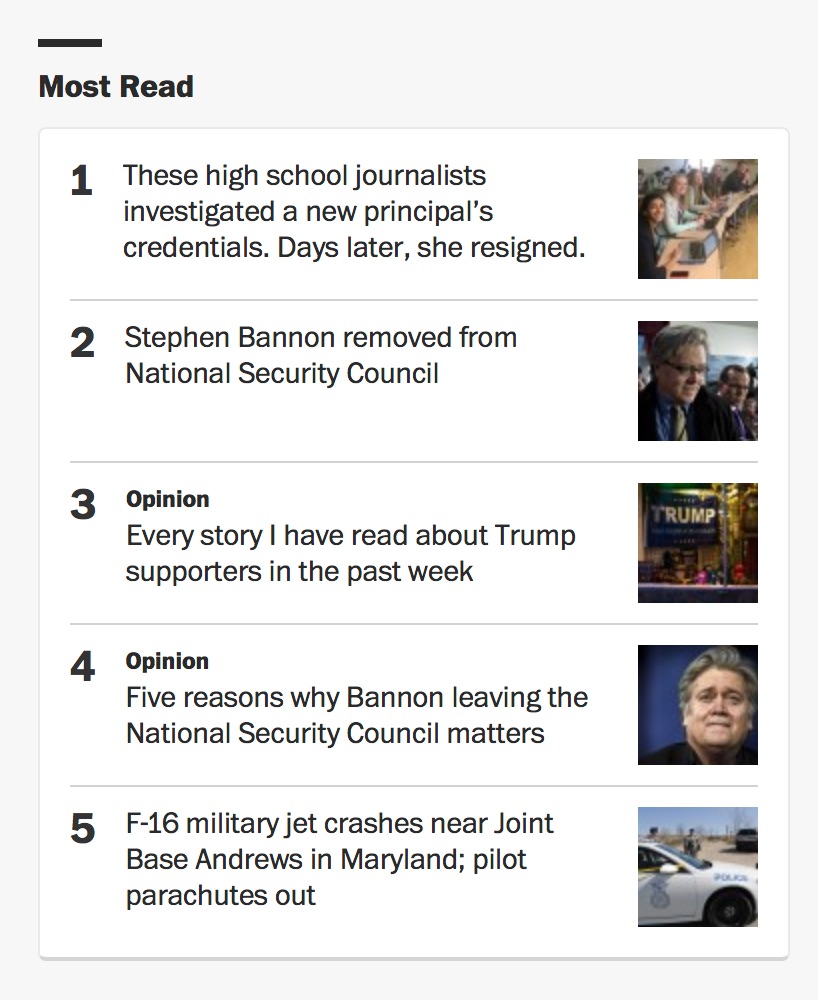 Pittsburg, Kansas is not a city that shows up much in the national media. Before this week, there had only been about four mentions of the city in the Washington Post over the last decade. One was when Pulitzer Prize-winning poet James Tate died in 2015. (Tate got his bachelor’s degree from Kansas State College there in 1965.) Before that, it was when Pittsburg State University wide receiver John Brown was drafted by the Arizona Cardinals in 2014. There were also brief mentions of the death of a judge who had been born there and the fact that an unnamed Fortune 500 CEO had been born there.
Pittsburg, Kansas is not a city that shows up much in the national media. Before this week, there had only been about four mentions of the city in the Washington Post over the last decade. One was when Pulitzer Prize-winning poet James Tate died in 2015. (Tate got his bachelor’s degree from Kansas State College there in 1965.) Before that, it was when Pittsburg State University wide receiver John Brown was drafted by the Arizona Cardinals in 2014. There were also brief mentions of the death of a judge who had been born there and the fact that an unnamed Fortune 500 CEO had been born there.
But on Wednesday the most-read story on The Washington Post’s web site was about a group of Pittsburg High School students who discovered through dogged journalistic research that their high schools newly hired principal had questionable educational credentials. That story, reported in the school paper The Booster Redux on Friday, March 31, resulted in the new principal, Amy Robertson, resigning her post following a school board meeting on Tuesday evening of this week.
Seventeen-year-old Connor Balthazar told the Washington Post that “There were some things that just didn’t quite add up,” about things Robertson. Reporting on the story was done by a team of six high school students. In their story, the students wrote:
“The Booster Redux Staff typically introduces each new administrator at PHS with a news story. During the interview process with Robertson, the Booster staff found inconsistencies in Robertson’s credentials. The staff presented these concerns to Pittsburg Community School superintendent Destry Brown, who encouraged the Booster reporters to reach out to Robertson.
“On March 16, the Booster staff held a conference call with the incoming principal. Booster adviser Emily Smith and Brown were also present. During the call, Robertson presented incomplete answers, conflicting dates and inconsistencies in her responses.
“After the conference call interview, the staff conducted further research online by phone interview to confirm her credentials. These are the findings.”
And what a set of findings they were:
- Robertson claimed to have a master’s degree and Ph.D from Corllins University in Stockton, California.
- But the students’ research showed no signs in property records that there had ever been a university by that name in Stockton, no U.S. Department of education records documenting the university, no sign of an active web site of the university, and an online article that referred to Corllins University as a diploma mill.
- Robertson claimed to have bachelor of fine arts degree in theater arts from Tulsa University. While TU is a very real school, the students found that it has never offered a BFA in theater.
PHS senior Trina Paul, part of the reporting team, told the Kansas City Star that the students just were concerned about Robertson’s credentials. “She was going to be the head of our school, and we wanted to be assured that she was qualified and had the proper credentials. We stumbled on some things that most might not consider legitimate credentials.”
Following the publication of the story, the Pittsburg Community Schools Board of Education held a special meeting, and following a brief closed session, Robertson resigned, the Star reports.
The students are normally advised by their award-winning journalism teacher Emily Smith, but she had to recuse herself on this story, she told the Washington Post, because she had been on the search committee that had hired Robertson. But the students did receive help from a range of state and national journalists and experts. Smith is understandably proud of what her high school students have accomplished: “Everybody kept telling them, ‘stop poking your nose where it doesn’t belong.’ They were at a loss that something that was so easy for them to see was waiting to be noticed by adults.”
Once their story was published and Robertson resigned, PHS journalism students started getting national attention for their work. Along with the stories from the Post and the Star, there were tweets and retweets from a number of top national journalists including Boston Globe Spotlight team reporter Todd Wallack, Washington Post executive editor Marty Baron, and Washington Post political reporter David Fahrenthold.
Great investigative work by high school journalists. https://t.co/X8ej4bK9lQ
— Todd Wallack (@TWallack) April 4, 2017
This made my day. @schmidtsam7 https://t.co/LhaVxt6jc9 pic.twitter.com/jqi5Z90d5h
— Todd Wallack (@TWallack) April 5, 2017
These high school journalists investigated a new principal’s credentials. Days later, she resigned. https://t.co/OE9UOMMyxH
— Marty Baron (@PostBaron) April 5, 2017
Upate 4/6/17 – Story has hit the New York Times!
It's been an inspiring week for high school journalism, with this story on top of #HSJDay https://t.co/SbWeKsf7pG
— Jake Batsell (@jbatsell) April 6, 2017
There are days when I worry about the future of journalism, and then there are days like today when I know the future of my field and passion is in good hands.
Congrats to these young journalists – they’ve got a great future ahead of them.
I’m proud of you!

Pingback: Questions Worth Asking (Maybe) | Living in a Media World